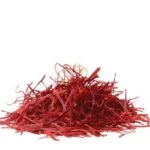Aromatherapy has long been used for its potential health benefits, including its antibacterial properties. In this article, we will explore the use of cinnamon oil in aromatherapy and its potential as an antibacterial agent.
Aromatherapy is the practice of using essential oils to promote physical and psychological well-being. Cinnamon oil is one such essential oil that is believed to possess antimicrobial and antibacterial properties, making it a popular choice for aromatherapy enthusiasts looking for natural alternatives to chemical antibacterial agents.
Before delving into the potential antibacterial properties of cinnamon oil, it’s important to understand what aromatherapy is and how it works. Aromatherapy involves the use of essential oils extracted from plants to improve health and well-being. These oils can be inhaled, applied topically, or even ingested (although this should always be done under the guidance of a qualified professional). Different methods of using essential oils in aromatherapy can help address various health concerns, including their potential antibacterial effects.
Cinnamon oil has been traditionally used for a wide range of purposes, from flavoring food to addressing various health issues. In recent years, there has been growing interest in the potential antimicrobial and antibacterial properties of cinnamon oil.
Studies have suggested that cinnamon oil may indeed possess these beneficial qualities, leading many to consider it as a natural alternative to chemical antibacterial agents. As we delve deeper into this article, we will explore the scientific research on cinnamon oil and its potential as an effective antibacterial tool in the context of aromatherapy.
Understanding Aromatherapy
Aromatherapy is a holistic healing treatment that uses natural plant extracts, known as essential oils, to promote overall health and well-being. These essential oils are extracted from various parts of plants such as flowers, leaves, stems, bark, or roots and are then used in a variety of ways to achieve therapeutic benefits.
What Is Aromatherapy and How Does It Work
Aromatherapy works through the sense of smell and skin absorption. When the aroma of an essential oil is inhaled, it can stimulate areas of your limbic system, which is a part of your brain that plays a role in emotions, behaviors, sense of smell, and long-term memory. This stimulation can promote relaxation, reduce stress, improve mood and even help with cognitive function.
Different Methods of Using Essential Oils in Aromatherapy
There are several methods for using essential oils in aromatherapy including inhalation (diffusing the oil into the air), topical application (diluting the oil and applying it to the skin), and ingestion (under the guidance of a healthcare professional). Each method has its own benefits and considerations and can be chosen based on individual needs and preferences.
Overall, aromatherapy offers a natural approach to health and wellness by harnessing the powerful properties of essential oils. One such essential oil known for its potential antibacterial properties is cinnamon oil. In the next section, we will delve deeper into cinnamon oil and its benefits for aromatherapy.
Cinnamon Oil and Its Benefits
Cinnamon oil has been recognized for its potential antibacterial properties and its various benefits in aromatherapy. Derived from the cinnamon plant, this essential oil has been used for centuries in traditional medicine and holistic practices. In recent years, there has been a growing interest in the scientific research surrounding the antimicrobial and antibacterial properties of cinnamon oil.
One of the key benefits of cinnamon oil is its ability to combat bacteria and microbes, making it a popular choice for those seeking natural alternatives to chemical antibacterial agents. The active compounds found in cinnamon oil, such as cinnamaldehyde, have been shown to possess strong antimicrobial properties that can help fight off harmful bacteria.
Using cinnamon oil in aromatherapy not only provides a pleasant and comforting aroma but also offers potential health benefits due to its antibacterial properties. When properly used, cinnamon oil can help create a healthier environment by reducing the presence of harmful bacteria. From personal care products to household cleaning solutions, cinnamon oil can be a valuable addition to your wellness routine. Listed below are some ways you can use cinnamon oil for its antibacterial effects:
- Diffusing cinnamon oil in the air to purify and cleanse the surroundings
- Adding a few drops of cinnamon oil to DIY cleaning solutions for its antibacterial properties
- Incorporating cinnamon oil into homemade hygiene products like soaps and lotions
Incorporating cinnamon oil into your aromatherapy routine can provide not only a pleasing scent but also potential health benefits due to its antibacterial properties. Whether used alone or blended with other essential oils, cinnamon oil brings added antimicrobial support that can enhance your overall well-being while creating a cozy atmosphere in your living spaces.
Scientific Research on Cinnamon Oil
Recent studies have shown promising results regarding the antibacterial properties of cinnamon oil. The active compounds in cinnamon oil, such as cinnamaldehyde and eugenol, have been found to exhibit strong antimicrobial effects against a wide range of bacteria. These findings suggest that cinnamon oil can be used as a natural alternative to chemical antibacterial agents.
A study published in the International Journal of Food Microbiology revealed that cinnamon oil was effective in inhibiting the growth of several strains of bacteria, including E. coli and Salmonella. Another study in the Journal of Natural Products reported that cinnamon oil demonstrated significant antibacterial activity against Staphylococcus aureus, a common pathogenic bacterium responsible for various infections.
Furthermore, research conducted at Kansas State University found that incorporating cinnamon oil into food packaging materials can help prevent the growth of foodborne pathogens, thereby extending the shelf life of perishable products. These scientific findings support the potential use of cinnamon oil for its antibacterial properties, not only in aromatherapy but also in food preservation and healthcare.
Using Cinnamon Oil for Aromatherapy
Aromatherapy is the practice of using essential oils to promote physical and emotional well-being. These natural oils are extracted from plants and have been used for centuries in various cultures for their therapeutic properties. Cinnamon oil, in particular, has gained attention for its potential antibacterial properties, making it a valuable addition to aromatherapy routines.
When it comes to aromatherapy, there are several methods of using essential oils to enjoy their benefits. Cinnamon oil can be diffused into the air using a diffuser, allowing its aromatic compounds to permeate the space and potentially provide antibacterial effects. It can also be diluted with a carrier oil and applied topically to the skin for targeted antibacterial benefits. Additionally, cinnamon oil can be added to bath water or mixed into beauty products as part of a hygiene routine.
The use of cinnamon oil in aromatherapy for its antibacterial properties should be done with caution and proper knowledge. It is important to always dilute cinnamon oil with a carrier oil before applying it to the skin, as it can be irritating when used undiluted.
Some individuals may also have sensitivities or allergic reactions to cinnamon oil, so it is advisable to perform a patch test before using it extensively. When diffusing cinnamon oil, it should be done in a well-ventilated area and for limited periods of time in order to prevent any adverse reactions.
Recipes and Blends
Cinnamon oil can indeed be used for its antibacterial properties, making it a valuable addition to aromatherapy blends aimed at promoting a clean and healthy environment. When used in combination with other essential oils, cinnamon oil can enhance the antibacterial effects of the blend, making it an effective natural alternative to chemical antibacterial agents.
Research has shown that cinnamon oil exhibits strong antimicrobial properties, particularly against certain strains of bacteria. Its main component, cinnamaldehyde, has been found to possess significant antibacterial activity. This makes cinnamon oil a popular choice for those looking to create DIY antibacterial blends for their aromatherapy routine.
When incorporating cinnamon oil into your aromatherapy practice for its antibacterial properties, it is important to do so safely and effectively. Due to its potency, cinnamon oil should always be diluted with a carrier oil before being applied to the skin or used in a diffuser. Additionally, it is important to perform a patch test prior to using any new essential oil to ensure that you do not have an adverse reaction.
| Essential Oil | Antibacterial Properties |
|---|---|
| Tea Tree | Known for its strong antimicrobial and antiseptic properties |
| Eucalyptus | Has powerful germicidal and antifungal qualities |
| Lavender | Exhibits mild yet effective antibacterial properties |
By incorporating these essential oils into blends with cinnamon oil, individuals can create customized aromatherapy solutions tailored towards achieving optimal antibacterial benefits.
Practical Applications
Cinnamon oil has been gaining attention for its potential antibacterial properties, making it a popular choice for those looking for natural alternatives to chemical antibacterial agents. When used in aromatherapy, cinnamon oil can provide not only a pleasant and calming aroma, but also serve as a powerful antibacterial aid. In this section, we will explore the practical applications of cinnamon oil for its antibacterial properties.
Using Cinnamon Oil for Cleaning and Hygiene
One practical application of cinnamon oil is in cleaning and hygiene products. Due to its antimicrobial properties, cinnamon oil can be incorporated into homemade cleaning solutions, air fresheners, and even hand sanitizers. Adding a few drops of cinnamon oil to a spray bottle with water and vinegar can create an effective all-purpose cleaner that also leaves behind a delightful scent.
Cinnamon Oil for Personal Care
Cinnamon oil can also be used in personal care products due to its antibacterial effects. It can be added to homemade toothpaste or mouthwash to help combat oral bacteria, or included in skincare products such as lotions and creams to promote bacteria-fighting properties. However, it’s important to use cinnamon oil cautiously on the skin, as it may cause irritation in high concentrations.
Other Practical Uses
Aside from cleaning and personal care, cinnamon oil can be diffused in the air to purify the environment and reduce airborne bacteria. It can also be used as a natural insect repellent due to its antibacterial properties. By incorporating cinnamon oil into your daily routine, you
Incorporating cinnamon oil into your aromatherapy practice for its antibacterial properties opens up a world of possibilities for using this natural remedy in various practical applications. Whether it’s for cleaning, personal care, or simply creating a healthy living environment, cinnamon oil provides an effective and aromatic solution for combating bacteria without the need for synthetic chemicals.
Conclusion
In conclusion, it is evident that cinnamon oil has the potential to be used for its antibacterial properties in aromatherapy. The research and scientific studies discussed in this article demonstrate the effectiveness of cinnamon oil as a natural alternative to chemical antibacterial agents. With its proven antimicrobial benefits, cinnamon oil can be incorporated into aromatherapy routines for various practical applications such as cleaning, hygiene, and personal care.
Furthermore, the use of cinnamon oil in DIY recipes and blends provides individuals with the opportunity to create customized antibacterial products that are safe and effective. By combining cinnamon oil with other essential oils, enhanced antibacterial effects can be achieved, making it a versatile option for those seeking natural solutions for hygiene and wellness.
In light of these findings, it is important to note that while cinnamon oil shows promise for its antibacterial properties in aromatherapy, caution should be exercised when using it. It is essential to follow recommended guidelines and safety tips to ensure proper usage and avoid any potential adverse reactions. Overall, the potential of cinnamon oil for its antibacterial effects in aromatherapy offers a natural and holistic approach to promoting cleanliness and well-being.
Frequently Asked Questions
Is Cinnamon Essential Oil Antibacterial?
Yes, Cinnamon essential oil is known for its antibacterial properties. It has been used for centuries to help fight off harmful bacteria and prevent infections. When diffused or applied topically, it can help eliminate bacteria in the air and on surfaces.
What Is the Benefit of Cinnamon Oil in a Diffuser?
The benefit of using cinnamon oil in a diffuser is that it helps purify the air by killing airborne bacteria. This can create a healthier indoor environment and reduce the spread of germs. Additionally, the warm, spicy aroma of cinnamon oil can create a cozy and comforting atmosphere.
What Is the Strongest Antibacterial Essential Oil?
Tea tree essential oil is often considered one of the strongest antibacterial essential oils. It has powerful antimicrobial properties that make it effective against a wide range of bacteria, viruses, and fungi. When used in aromatherapy or as a natural cleaning agent, tea tree oil can help eliminate harmful pathogens and promote a clean, healthy environment.

Are you looking for a natural way to improve your health and wellbeing?
If so, aromatherapy may be the answer for you.





